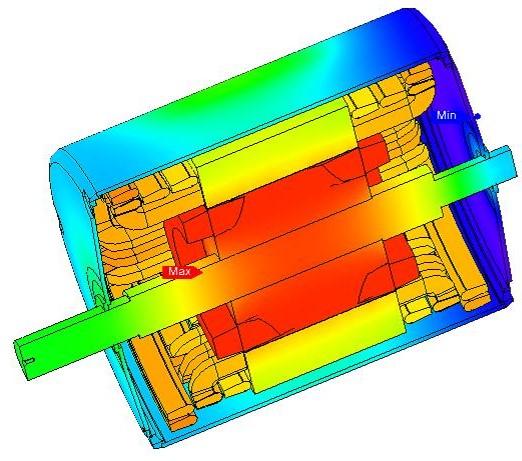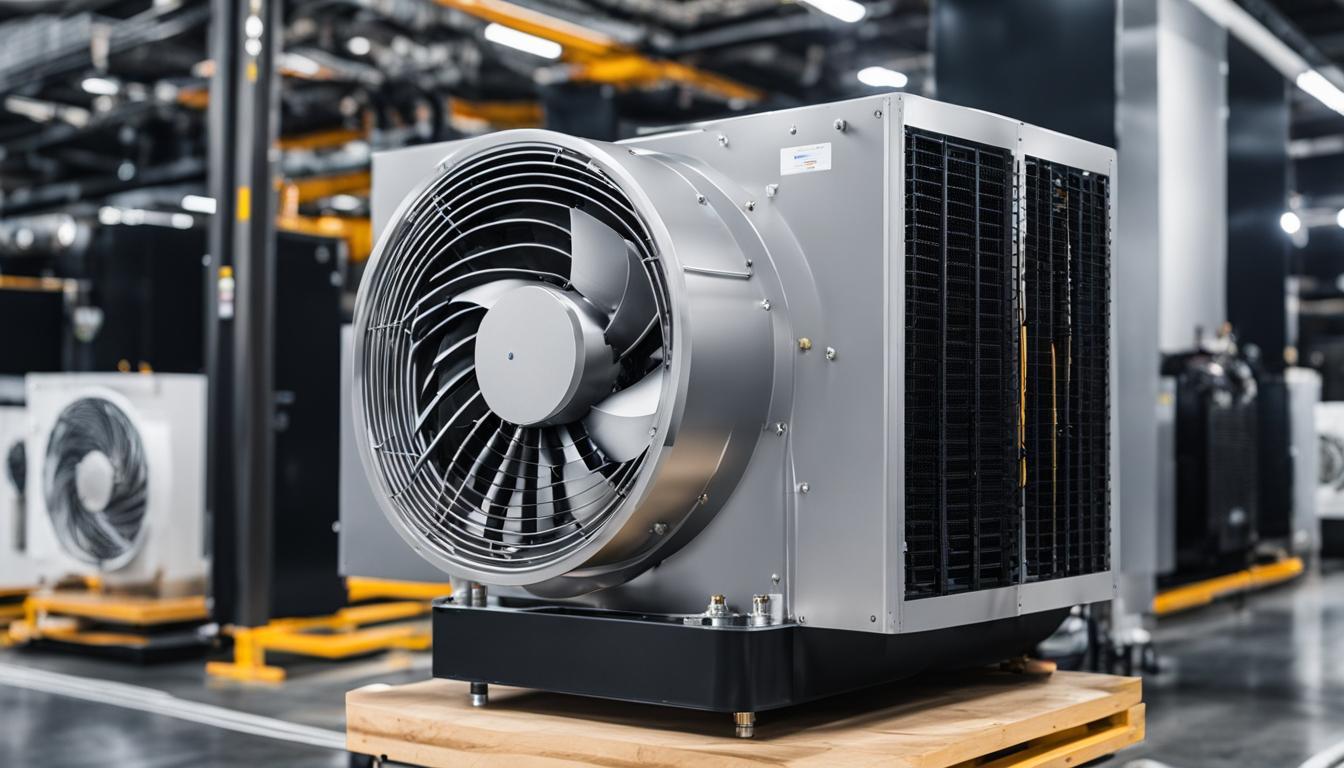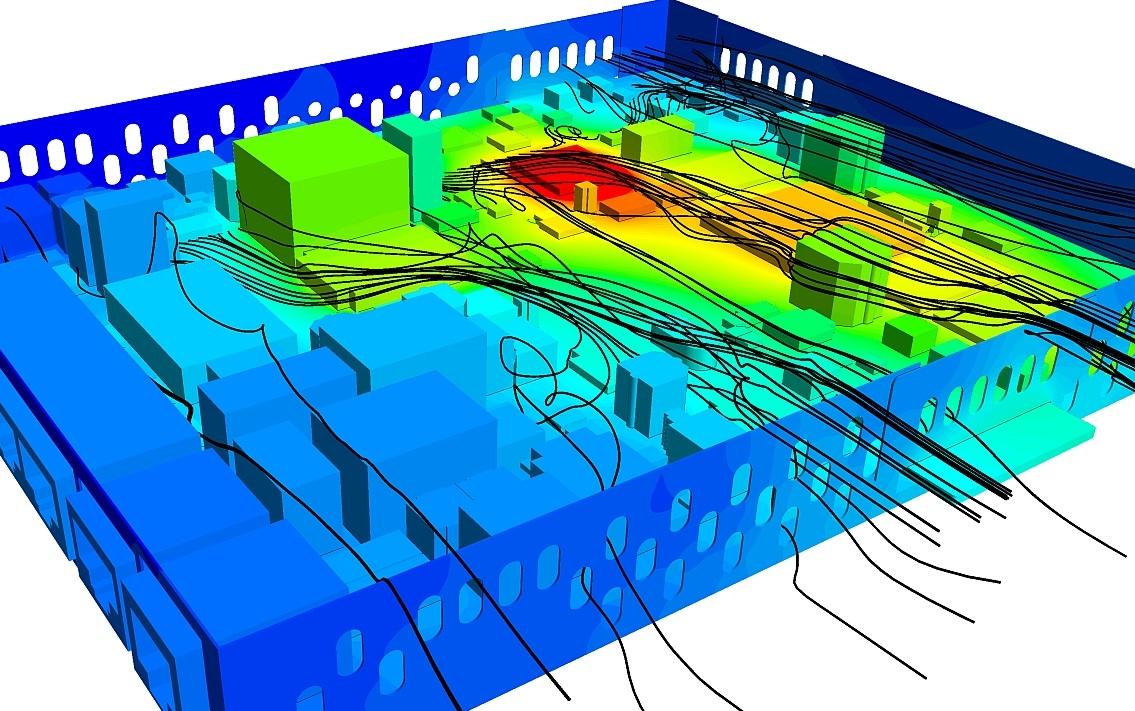In the fast-evolving world of technology, the demand for high-performance hardware has never been greater. As we usher in the era of Gen 12 devices, the importance of thermal design cannot be overstated. From keeping components cool to ensuring efficiency and reliability, innovative thermal solutions are at the forefront of providing optimal performance for next-generation hardware. Join us as we explore the key role of thermal design in supporting Gen 12 hardware, and how it is essential in creating a seamless and cutting-edge user experience.
Table of Contents
- Exploring the Importance of Thermal Design in Gen 12 Hardware
- Achieving Optimal Cooling Solutions for Gen 12 Devices
- Enhancing Efficiency Through Strategic Thermal Management Techniques
- Ensuring Reliability in Gen 12 Hardware with Advanced Thermal Designs
- Q&A
- Key Takeaways

Exploring the Importance of Thermal Design in Gen 12 Hardware
When it comes to Gen 12 hardware, thermal design plays a crucial role in ensuring the performance, longevity, and reliability of the components. Efficient thermal management is essential for keeping the hardware cool during intensive tasks, preventing overheating, and maximizing overall system efficiency.
By incorporating innovative thermal solutions, such as advanced heat sinks, liquid cooling systems, and optimized airflow design, Gen 12 hardware can achieve superior thermal performance. This not only enhances the user experience by maintaining optimal operating temperatures but also prolongs the lifespan of the hardware, reducing the risk of component failure due to heat-related issues.

Achieving Optimal Cooling Solutions for Gen 12 Devices
In order to achieve optimal cooling solutions for Gen 12 devices, it is crucial to focus on thermal design that is not only cool but also efficient and reliable. By implementing innovative cooling techniques, such as liquid cooling or advanced heat sink designs, we can ensure that these devices operate at peak performance without overheating.
Furthermore, incorporating thermal management features into the hardware itself, such as intelligent fan control and monitoring systems, can help regulate temperatures and prevent any potential issues before they arise. By prioritizing cooling solutions from the initial design phase, we can guarantee that Gen 12 devices remain cool, efficient, and reliable throughout their lifespan.

Enhancing Efficiency Through Strategic Thermal Management Techniques
In the ever-evolving landscape of technology, thermal management is a critical component in ensuring the optimal performance of Gen 12 hardware. By implementing strategic thermal management techniques, we can enhance efficiency, reliability, and longevity of these advanced systems.
<p>One key strategy is the utilization of liquid cooling systems, which offer superior heat dissipation capabilities compared to traditional air cooling methods. By efficiently transferring heat away from sensitive components, liquid cooling systems help maintain stable temperatures even under heavy workloads. Additionally, incorporating advanced thermal interface materials, such as phase change materials or graphene-based solutions, can further improve heat transfer efficiency and reduce thermal resistance.</p>
Ensuring Reliability in Gen 12 Hardware with Advanced Thermal Designs
When it comes to ensuring reliability in Gen 12 hardware, thermal design plays a crucial role in maintaining optimal performance. Advanced thermal designs not only keep the hardware cool but also contribute to efficiency and reliability. By implementing innovative cooling mechanisms, such as heat pipes and vapor chambers, manufacturers can effectively dissipate heat and prevent overheating, which can lead to component damage and failure.
Additionally, thermal design solutions like thermal pads and thermal paste ensure proper thermal conductivity between components and heat sinks, further enhancing heat dissipation capabilities. These technologies work together to create a stable and reliable thermal environment for Gen 12 hardware, ultimately prolonging its lifespan and maximizing performance potential. With efficient thermal management systems in place, users can rest assured that their hardware will operate smoothly and reliably under demanding conditions.
Q&A
Q: What is thermal design and why is it important for Gen 12 hardware?
A: Thermal design refers to the process of designing a system to efficiently and effectively dissipate heat. It is crucial for Gen 12 hardware as it ensures the components operate at optimal temperatures, maximizing performance and longevity.
Q: How does thermal design contribute to the cooling of Gen 12 hardware?
A: Thermal design incorporates various cooling mechanisms such as heat sinks, fans, and thermal paste to efficiently remove heat generated by the hardware components. This helps maintain optimal operating temperatures and prevents overheating.
Q: What are the benefits of efficient thermal design for Gen 12 hardware?
A: Efficient thermal design helps extend the lifespan of hardware components, improve performance, and reduce the risk of hardware failure due to overheating. It also contributes to energy efficiency and overall system reliability.
Q: How can thermal design enhance the reliability of Gen 12 hardware?
A: By effectively dissipating heat, thermal design can prevent thermal throttling, which can degrade hardware performance and lead to premature failure. It also helps maintain stable operating temperatures, reducing the risk of component damage.
Q: What are some key considerations when designing thermal solutions for Gen 12 hardware?
A: When designing thermal solutions for Gen 12 hardware, factors such as component layout, airflow management, and thermal conductivity of materials must be taken into account. It is important to balance cooling efficiency, noise levels, and cost-effectiveness in the design process.
Key Takeaways
thermal design is a critical aspect of supporting Gen 12 hardware, ensuring that devices remain cool, efficient, and reliable. By harnessing cutting-edge technology and innovative engineering solutions, we can create a seamless and optimal user experience. Investing in robust thermal design not only enhances performance but also extends the lifespan of our devices. Together, let’s continue to push the boundaries of what is possible in the world of technology. Stay cool, stay efficient, and stay reliable. Thank you for joining us on this journey!










